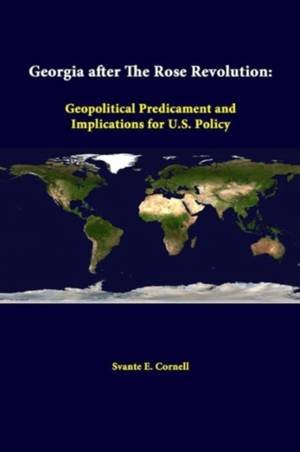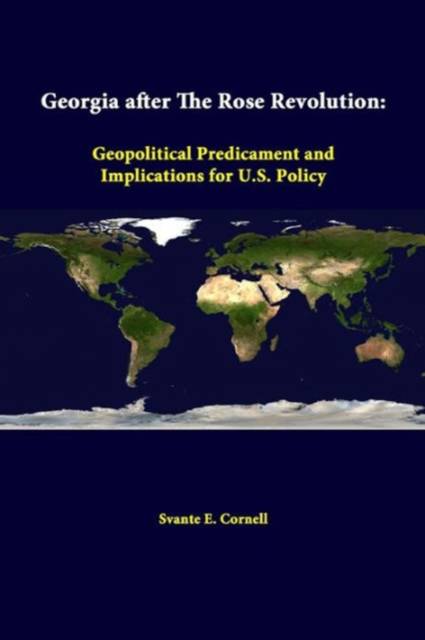
- Afhalen na 1 uur in een winkel met voorraad
- Gratis thuislevering in België vanaf € 30
- Ruim aanbod met 7 miljoen producten
- Afhalen na 1 uur in een winkel met voorraad
- Gratis thuislevering in België vanaf € 30
- Ruim aanbod met 7 miljoen producten
Zoeken
Georgia After The Rose Revolution
Geopolitical Predicament And Implications For U.S. Policy
Strategic Studies Institute, Svante E Cornell
Paperback | Engels
€ 20,45
+ 40 punten
Omschrijving
The attacks on New York and Washington on September 11, 2001, enhanced the importance of both the South Caucasus and Central Asia to American security. Overflight rights through the Caucasus to Central Asia and Afghanistan are vital components of the ongoing military effort there by both U.S. and North Atlantic Treaty Organization (NATO) forces. Therefore the security dynamics in each of these areas are of heightened importance to U.S. policy. But the Transcaucasus is a region of multiple conflicts and fault-lines. Three of the four so-called "frozen conflicts" in the former Soviet Union are to be found there and are not as frozen as they may look. Indeed, as multiple recent crises show, Russo-Georgian tensions connected with South Ossetia and Abkhazia-two of the frozen conflicts-could erupt into open violence at any time.
Specificaties
Betrokkenen
- Auteur(s):
- Uitgeverij:
Inhoud
- Aantal bladzijden:
- 48
- Taal:
- Engels
Eigenschappen
- Productcode (EAN):
- 9781312296435
- Verschijningsdatum:
- 21/06/2014
- Uitvoering:
- Paperback
- Formaat:
- Trade paperback (VS)
- Afmetingen:
- 152 mm x 229 mm
- Gewicht:
- 81 g

Alleen bij Standaard Boekhandel
+ 40 punten op je klantenkaart van Standaard Boekhandel
Beoordelingen
We publiceren alleen reviews die voldoen aan de voorwaarden voor reviews. Bekijk onze voorwaarden voor reviews.











